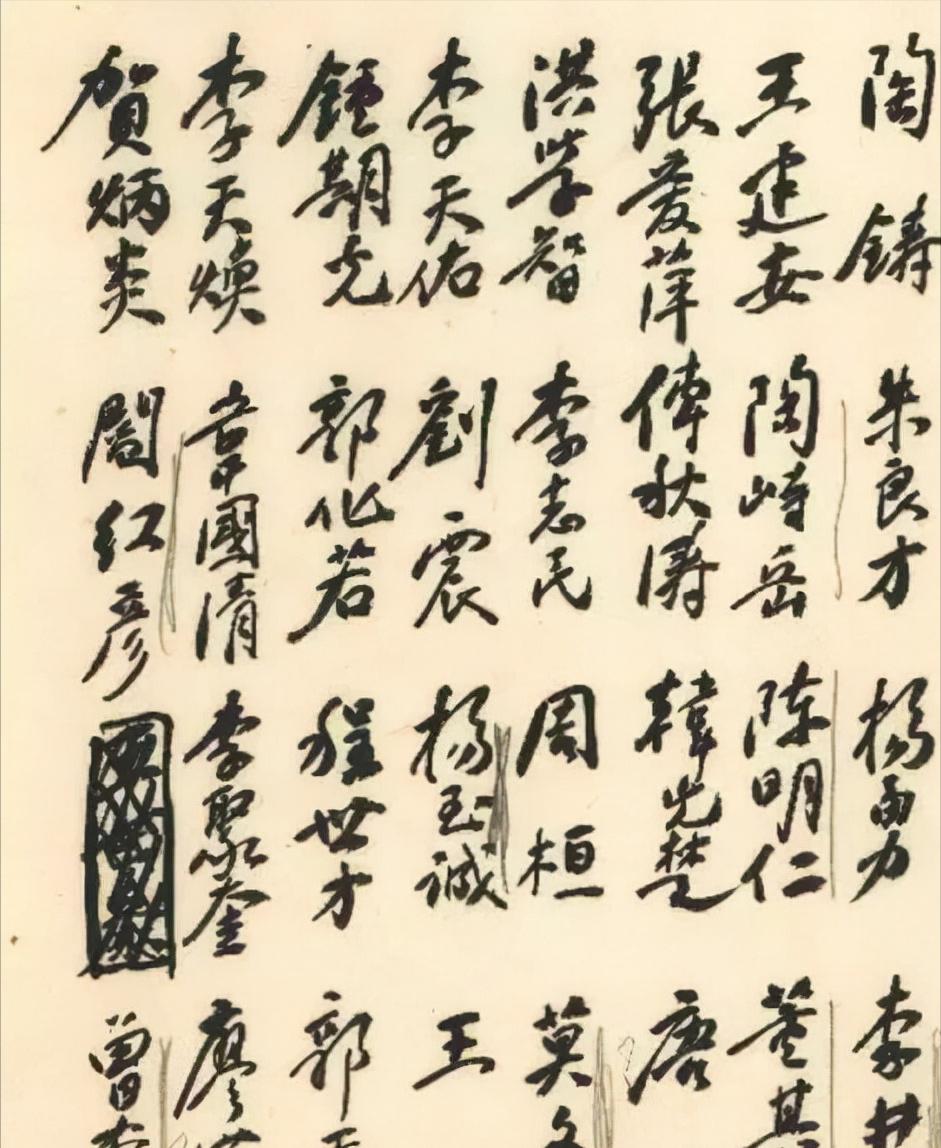Before and after the New China, 57 generals were awarded generals.
Behind the award, there are many untold stories, especially when the generals were elected, far more than 57 generals. Among them, some lieutenant generals have also been in the list of admirals, who are they?

These people are Guo Huaruo, Mo Wenhua, Li Tianhuan, Liao Hansheng, and Cheng Shicai.
Guo Huaruo, who served as acting chief of staff of the Army in 1931, was also ostracized because Chairman Mao temporarily left the leadership of the Red Army. In 1932, because of the "Trotskyist" hat, he was cold for 6 years. He really went to work in the combat unit in 1946.
In the East China Field Army, he partnered with the tiger general Wang Bicheng, commanded and participated in many battles, and made many military achievements. When the unit formed the Field Corps, he was promoted to corps commissar.
Judging from his battle record, he worked in the rear for 15 years from 1932 to 1947 before the East China Field Army, and his battlefield record was only more than two years.
Mo Wenhua, who joined the Baise Uprising revolutionary road in 1929, was good at doing political work in the army. He was sent to the Red Army University and kang da as the director of the political department. During the War of Resistance Against Japanese Aggression, he was transferred to the Left Behind Corps as the director of the Political Department.
After the founding of New China, he fought with the troops heading south and was transferred to the northeast halfway through. He is the director of the political department and deputy political commissar of the Liaodong Military Region of the Northeast Democratic Coalition Army. When the military district was abolished, in 1947 he was sent to the 4th Column as political commissar. During the Tashan Blockade War, he began political mobilization work and fought with commander Wu Kehua at the basic headquarters.
In 1949, the army formed a corps, and he was transferred to the political commissar of the 14th Corps. When the 14th Corps went south, the central government transferred Liu Yalou as the commander of the Air Force, and he was sent to the 13th Corps as a political commissar to liberate his hometown of Guangxi.
Speaking of his revolutionary resume, the credit is greater than the battle record, he has not been on the battlefield for more than ten years, and his work on the battlefield is only three or five years.
Li Tianhuan is not very famous, but his qualifications are very deep. During the Red Army period, he served as the director of the Political Department of the Red 30th Army; during the War of Resistance Against Japanese Aggression and the War of Liberation, he was responsible for specific political work in the Jin-Cha-Ji Military Region for a long time. In 1949, he served as the political commissar of the 20th Corps, and fought in the battles of Chasui, Pingjin, and Taiyuan.
Liao Hansheng, for many generals, joined the Red Army a little late and had been working in the guerrilla forces until he joined He Long's forces in 1933. Due to the lack of cadres in The He Laozong's troops, he was promoted quickly, and within a year he was promoted to the position of division political commissar. The War of Resistance Against Japanese Aggression and the War of Liberation had always been under he Long's command, and when New China was founded, he was only the political commissar of the 1st Army.
He was rated as a deputy corps in 1952, with the exception of the rank of deputy corps. The rating is generally based on the position before the founding of New China, and he may be rated according to the post of deputy political commissar of the Northwest Military Region after the founding of New China.
Cheng Shicai was an old qualifier of the Red Fourth Front, and served as a acting military commander and partnered with Li Xiannian. During the War of Resistance Against Japanese Aggression, he was very low-key, serving as the president of the Kang University branch school and the deputy director of the fourth department of the Central Party School. During the Liberation War, he served as the commander of the South Manchuria Military Region, a very high position, and was later transferred from the front line as the commander of the Western Liaoning Military Region.
The above 5, except for Liao Hansheng, have all held corps-level positions. Why didn't they award the rank of general? With insufficient combat achievements, such as Guo Huaruo, Mo Wenhua, Li Tianhuan, and Cheng Shicai, they worked in the rear for a long time and worked in the combat units for a short time, while Liao Hansheng had relatively low qualifications.
Titles are awarded not only for seniority, position, and morality, but also for military merit. Battle merit is the cornerstone of military ranks, and how can a general without battle merit convince the public?